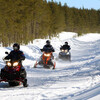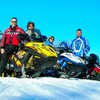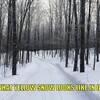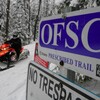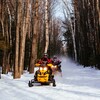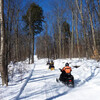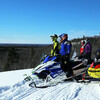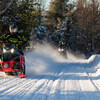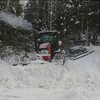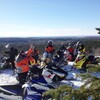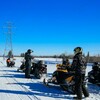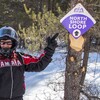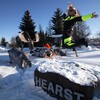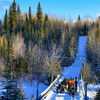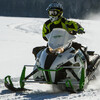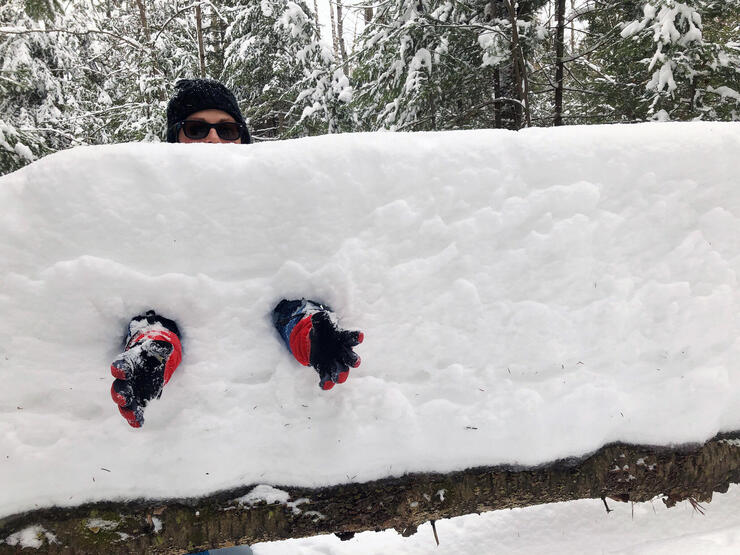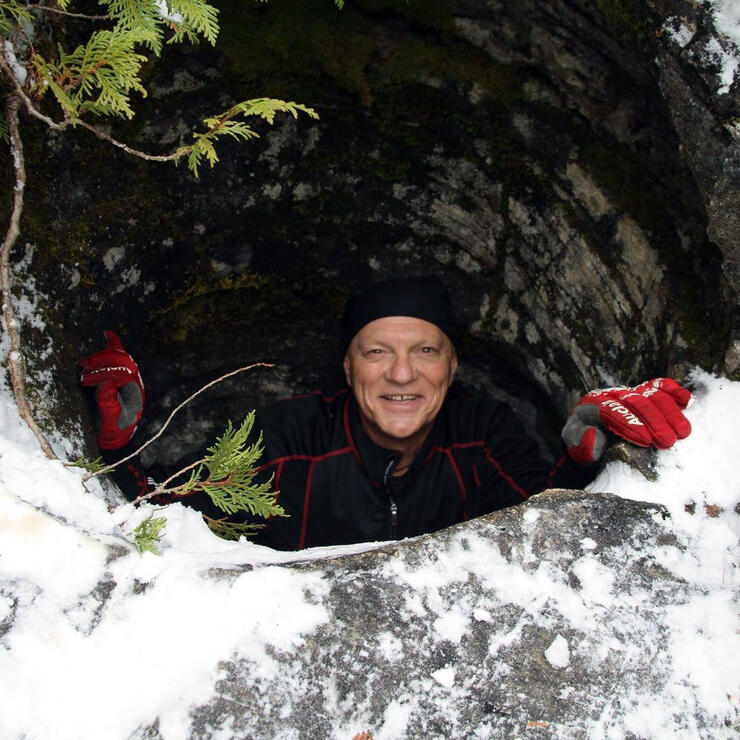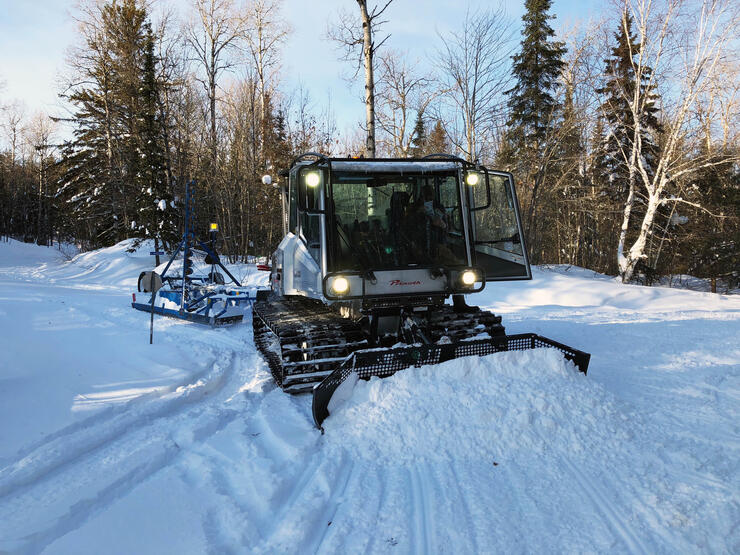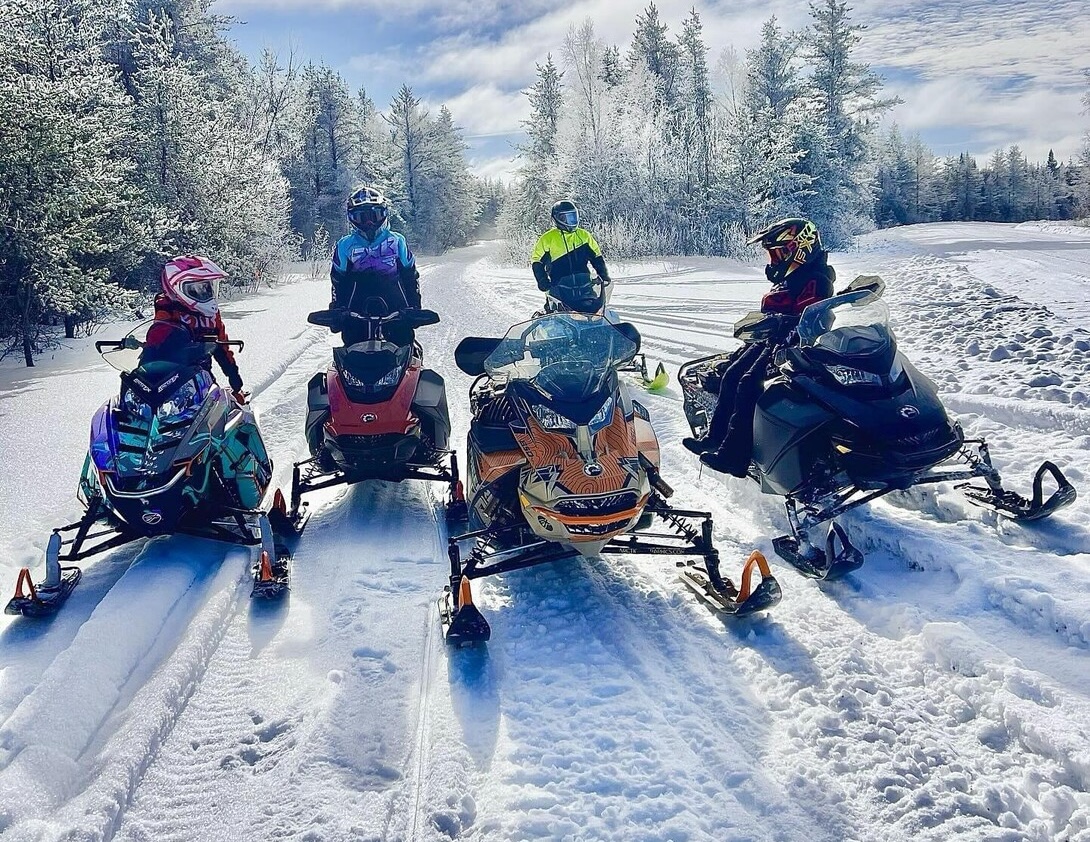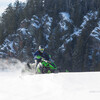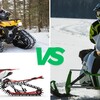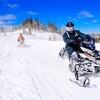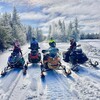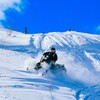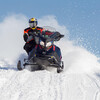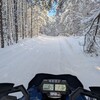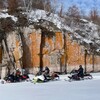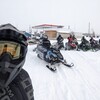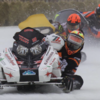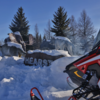
Please note this page may no longer be up to date. For new stories about Northern Ontario visit us here.
The 2019-20 Ontario Winter Weather Forecast
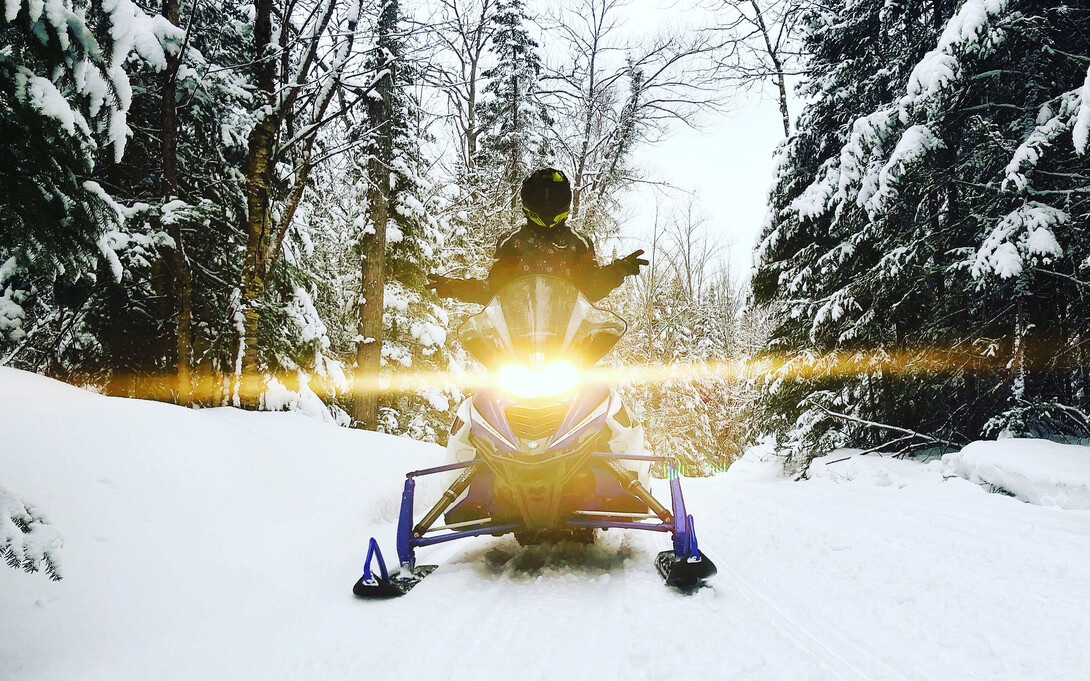
Stop any rider on the trail and ask them to choose a number between one and 10. More often than not, they will choose the number seven.
Seven is said to be the world’s favourite number. There are seven days in the week, seven continents, seven seas, seven dwarfs, the Group of Seven, seven basic storyline plots; heck, even Bond is 007. We’re attracted to the Prime Number seven. Are there a lot of snowmobile trails north of Highway 7? You bet there are! Can you ride in a place with seven feet of snow here? I can show you Ontario locations in any given winter with just that and more! All of this is just to say: this year marks year seven of the Ontario-specific, snowmobiler-focused Winter Forecast.
As with the last six years, I’ve stuck my neck out and made a prediction. The goal is to provide you with a first-rate, to-the-point, non-clickbait forecast. It’s developed not in some office tower in front of a computer endlessly staring at mathematical weather models, but from a mash-up of all different sources and varied references with a broad outlook. Most importantly of all, I do this from the point of view of an experienced Ontario snowmobiler. In the end, I deliver a best-in-class prediction of what the forthcoming winter will bring for sledders.
Last year in my Last Word, I made three bold predictions. The first was that snowbelt areas would see an abundance of snow. There was more snow in the Almagiun and north areas than I’ve seen in a decade, even 56% more snow than normal in Ottawa; some said too much snow. Second, I predicted the far north would ride well into April with available trails, which they did. And third, I said that we would see numbing cold several times. We had several frigid cold events, including one between Christmas and New Years that really set things up. In addition, I warned that we'd be dealing with cold vs. warm and snowy vs. rainy pendulums which, unfortunately for middle and southern Ontario, both seemed to swing and stay at the wrong ends all winter.
Will this year be different? Let’s find out if it’s Lucky Number Seven!
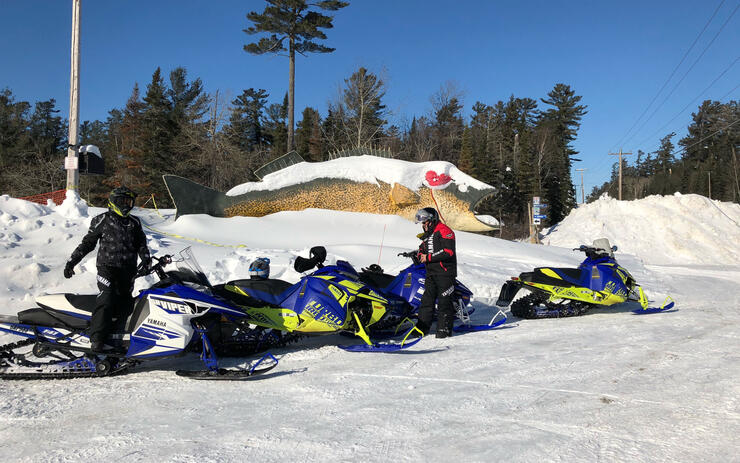
There is a season – Turn, Turn, Turn
What seems to be unpredictable more than ever these days is when seasons will turn. At least where I live, the winter of 2019 seemed to last forever and then when spring did arrive it was cool and rained day after day all the way until summer gloriously appeared.
The first official day of summer was Friday, June 21, and that date is almost precisely when summer arrived; the skies cleared and the sun shone down just in time for school to let out, vacations to start, and cottage and golf season to begin in full swing. Almost every weekend from the beginning of July through to August brought with it clear sunny skies and warm temperatures. It was a splendid summer to be outside on the water or trails, and by my count, we had our Canadian two months of summer— a full “season!”
Last year we highlighted the severe impact widespread forest fires had on mid- to Northern Ontario. This summer produced almost none in comparison to 2018, a good sign yet mildly concerning as forest fires are a natural part of forest regeneration. A wet spring followed by a dry summer, followed by fall and then winter. Keep reading.

Trust the Experts
For years now I’ve trusted Environment Canada’s Senior Climatologist David Phillips, not just for his comprehensive science-based climate knowledge but his ability to spell things out in clear, to-the-point terminology we can all understand. Dave recently spoke to the CBC about forecasting the weather, noting that it isn’t an easy business. The old saying “being a weatherperson is the only job you can be wrong all the time and still have your job” comes to my mind.
However, David’s not a “weatherman” or meteorologist—he’s a climatologist.
Climatology analyses long term atmospheric behaviors—seasons, years, decades, centuries—while meteorologists study atmospheric phenomena at any time over short-term intervals, no more than a few days. David notes that the current accuracy for forecasting the current day is roughly 95%, two days and it drops to 88%, and seven days is approximately 75%. So, you can now visualize how difficult it is to predict the forthcoming season, especially the long winter, with climate change and the statistic that winters in Canada have warmed by 3.4 C° since record keeping began.
Nevertheless, in an interview this September, David highlighted that: “In the ’50s, ’60s, and ’70s, the weather was very stable in Canada. The summers were hot. The winters were cold. And now it’s as if things are more wild; there are more jokers in the weather deck. All kinds of climate controls are changing. Take land cover—forests are diminishing. There’s the heat people are generating. It’s also the landscape. I mean, every time it rains in Toronto now, it’s a flood. I think 75 percent of Toronto is impervious to a raindrop; the pavement can’t absorb it.”
So what does this all mean, and what is David saying about the lead up to Winter 19-20? David says “we can expect "warmer than normal" temperatures this fall; this is in contrast to last fall which produced early winter-like conditions. David goes on to expand that summer ended on a high note with 30 C° temperatures in mid-September— trust me, I know, as I was racing Canada’s Toughest Off-Road Motorcycle Race, the Corduroy Enduro, in the heat of it.
The key takeaway in all of this is that David believes the land and water are warmer this year, and that we shouldn’t write the final chapter on summer just yet.
Too Much Water?
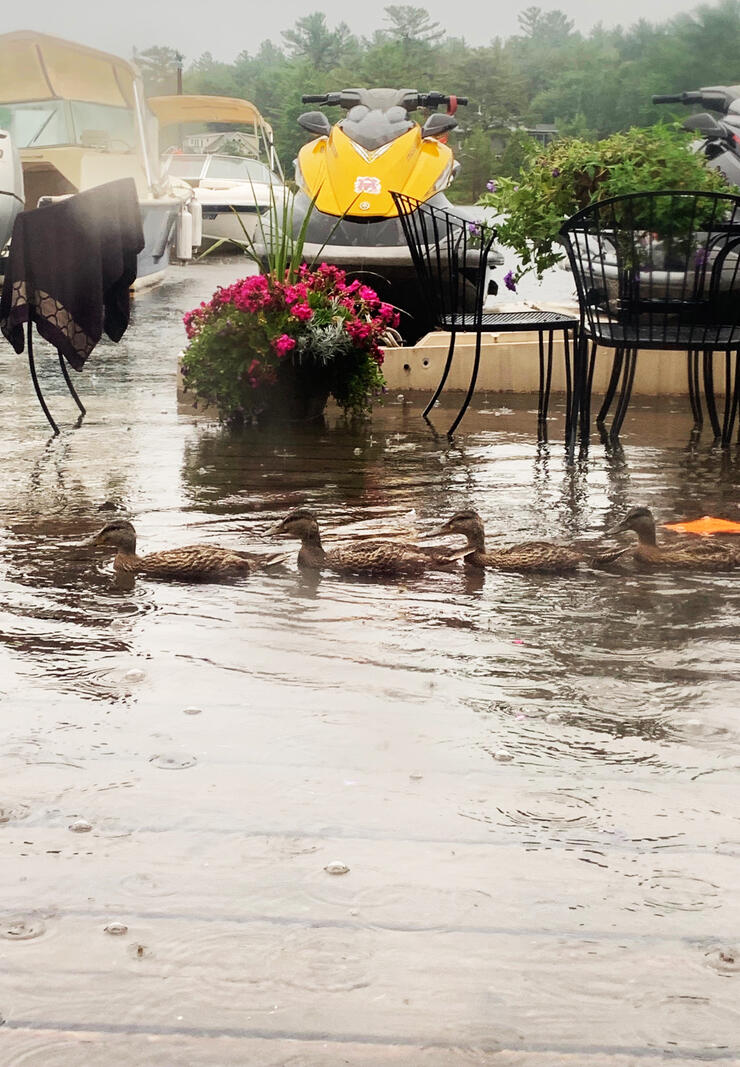
Both in 2017-18 and 2018-19, I spoke about the abundance of water accumulating in the Great Lakes. I can recall in 2013 where the discussion was about record low levels and the fact that, due to “global warming,” the lakes would never recover. But then by January of 2015, the lakes had experienced their largest 24-month rise in recorded history. For the past few years, levels have climbed even higher and risen so much that shorelines are gradually moving island. The US Army Corps of Engineers is reporting these high-water levels to be “a Great Lakes wide issue;” furthermore, they are forecasting even higher water levels into 2020. The discussion today isn’t about low levels, but high levels and their impact.
Public meetings, committees, and municipalities are all faced with tremendous challenges. I personally witnessed places like beautiful Pointe Au Baril Ontario with docks underwater, Wasaga Beach with no beach, the Town of Mattawa (the Off-Road Capital of Ontario) having to declare a state of emergency, and devastation to waterfront infrastructure in the Muskokas. Water has, without a doubt, wreaked havoc across much of Ontario in 2019.
In last year’s forecast, I referenced water temperatures in the Great Lakes. This year, my focus is on levels. We have an overabundance of fresh water pooled in the Great Lakes. These lakes are our natural snow-making machine and based on the levels, I feel it’s unlikely we will see them freeze over during the winter of 2020. Simply put—there’s just too much heat held in the massive amount of water. You can check lake conditions and temperatures here.
It Comes from the West
Jet streams and prevailing winds flow across North America from west to east. Speaking to my brother In-law in Alberta, he tells me it's been cold and snowy there and that we'll see the same weather in a few days. Just as described by him I’m hearing of snow falling in Thunder Bay and Wawa right now as pen this article.
The National Oceanic and Atmospheric Administration announced in mid-August of 2019 that El Niño was now over; a weak El Niño has been around since the fall of 2018. The NOAA published that sea-surface temperatures in the Pacific Ocean were back to normal. This means that we are now in a neutral state and have neither the El Niño or La Niña conditions which we’ve so commonly heard about. (Fun fact: this neutral condition is known as La Nada.) Further, the NOAA predicts a 50% to 55% chance that the normal conditions will continue through winter 2020.
The map below speaks for itself as to what this may mean for Ontario’s forthcoming winter.
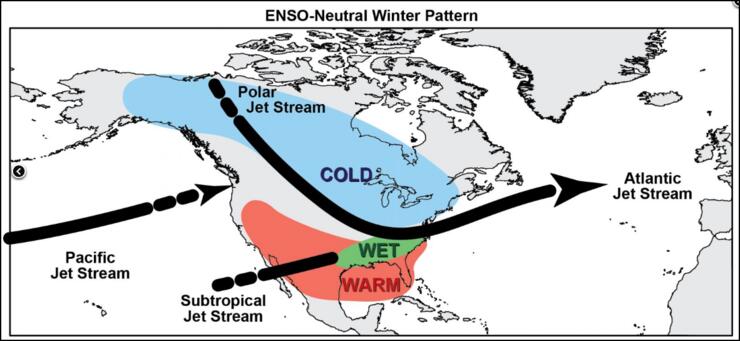
The Famous Farmer
The Farmers’ Almanac is over 200 years old, developed by David Young in 1818. The model utilized is both mathematical and astronomical, and uses a set of rules that include moon phases and sunspots. I’ll give the Almanac credit: the late-summer release of its winter forecast seems to send the media into a frenzy while summer is still in full swing. Catchy tag lines like “Polar Coaster,” “Freezing, Frigid, and Frosty,” and “Game of Snows” filled news and social media feeds for what felt like an eternity.
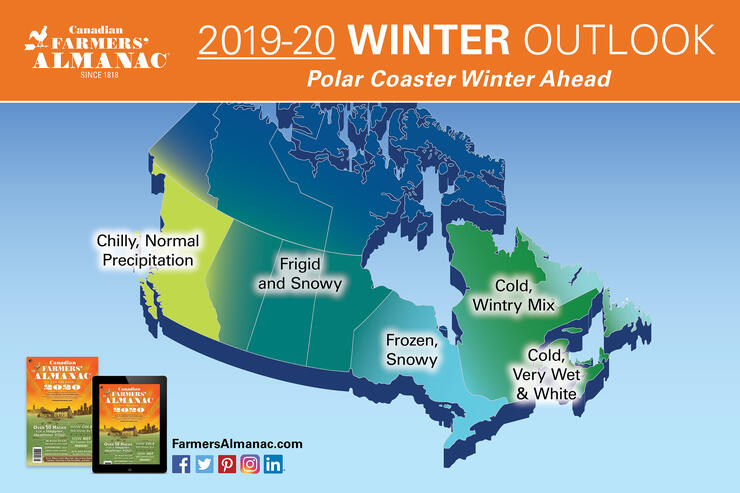
All in all, the Almanac is predicting good news for us Ontario Snowmobilers. Editor Peter Griger wrote: "Our long-range forecast is calling for yet another freezing, frigid, and frosty winter for two-thirds of the country." Further on, their prediction notes that the coldest period will be late November to early January and that the snowiest period will be in mid-December to late January.
From northwestern to eastern Ontario, it looks like we will see a combination of “Frigid & Snowy” to “Cold Very Wet & White,” at least according to the Almanac’s prediction.
As Many Backcountry Miles as a Moose
Backroads Bill Steer has been predicting what the winter will be like for his entire life. Gauging the weather is key to any backcountry expedition. As is being prepared for any weather conditions—a note more snowmobilers should take seriously. Bill’s a trusted contributor and no one I know spends more time in the bush than he does—he’s logged as many backcountry miles as a moose. Bill was trained to observe and predict the weather by the late Gord Restoule from Dokis First Nation. “Gord taught me to look for the natural signs,” he recalls. “People want to know the four aspects of winter: when it will start and end, how cold will it be, and how much snow."
He admits last year he was “pretty much all wrong” and his rate of accuracy has plummeted from the 80+ percentile to the low 70s. This year Bill reports that “I have seen several wasps’ nests high up in the trees, so I am saying lots of snow, most likely not until mid-January. But the geese are still around, and the beaver lodges don't seem to have much mud and smaller feed beds, so a shorter, milder winter when compared to last year.” I believe Bill is onto something here, especially after re-reading David Phillip’s comments on fall.
THE PREDICTION: ENJOY FALL, WINTER WILL COME
Plan for an extended fall and get the entire honey-do list completed. I believe we’re going to experience extended above-average temperatures going into mid-fall; however when winter arrives, you will feel it in your bones. The summer of 2019 ended instantly, and I believe winter will arrive overnight, lock its grip on our province, and stay for a good while. Expect the return of several multi-day polar vortex events; some areas, particularly in the north, will see temperatures drop and stay to -35° C and below for days if not a week.

The Toronto International Snowmobile, ATV and Powersports Show is just around the corner and I’ll be there—come find me and let’s talk snow. Now is the perfect time to visit your local dealer and lock in on a new sled and gear for the coming winter, which is much easier to bring home if the honey-do list is completed.
A CENTURY OF PREDICTIONS or CENTURIES OF KNOWLEDGE
As noted, the Farmers’ Almanac goes back more than 200 years, but the knowledge and teachings of Gord Restoule from Dokis First Nation that have been instilled in Backroads Bill Steer more than likely go back centuries over generations. This year, for perhaps the first time, their predictions align very closely, with both pointing towards what I’d like to call a Good Ol’ Fashioned Canadian Winter. Each of them are predicting an extended fall, and winter arriving with a vengeance towards the end of December.
What is THE LAKE-EFFECT SNOW MACHINE?
We have an overabundance of shoreline-eroding water in the Great Lakes, and a predicted jet stream flow, bringing with it cold air from the north that will channel easterly across the lakes. By my interpretation, this means that the lake-effect snow machine will be in full force this winter. Areas that missed getting blasted with the fluffy white-out conditions will most likely experience their reckoning. Yes, that’s correct: I'm predicting that the southern snow-belt areas will see several big-time lake-effect snow events this winter—watch out, Simcoe and Grey Counties!

THE SLEDDER’S PULSE
Permits are now on sale—remember to buy where you ride. In addition, the OFSC is making a number of upgrades to the grooming fleet. They’ve been communicating over the last number of months through social media and email the efforts that have been taken to ensure that equipment is ready when the snow arrives. This is a major undertaking in organization, cooperation, and financial resources.
The Interactive Trail Guide—which, believe it or not, has now been around for over a decade—is seeing further upgrades and enhancements. It’s one of the most used trail navigation/reporting tools in the world! One of the major items that sticks out in the sledder’s pulse is that more snowmobilers are giving back to the sport. I’ve witnessed clubs starting to turn “regular business meetings” into get-togethers, creating new friendships and networking opportunities. OEMs like Yamaha are partnering with the OFSC Landowner Recognition Program to create initiatives to show our appreciation for the generous landowners who allow our trails to pass through their properties. By the way, stay on the trail or use the Crown Land Atlas to find where you can ride off-trail.
The Last Word
Lucky Number Seven: I’m predicting that the winter of 2020 is going to be a banner winter and we may very likely win the snowmobiler winter jackpot. My best advice, given seven years now of forecasting, is to get out and ride when the snow is there and the trails are open. Just like at the casino, to win the jackpot you have to invest so please do pre-order your permit, book your trip accommodations, get together with your riding friends and plan that trip of a lifetime.
I’m predicting the southern part of the province is going to have great early to mid-season riding, but it won’t last. The north, however, will once again go well into April! If there’s one thing you can be sure of in Northern Ontario, it’s that winter is guaranteed! See you on the trails!

Recommended Articles

The Complete List of Snowmobile Events in Ontario 2025-2026

The Best Snowmobile-Friendly Lodges
Snowmobiling Winter Weather Forecast 2025-2026

I Rode the Explorers Snow Tour in Ontario and Here’s What It Was Like

Why Ontario is One of the Best Snowmobile Destinations in the World
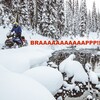
11 TikToks That Prove Ontario is the Best Place To Go Snowmobiling

5 Weekend Snowmobile Getaways Near the GTA
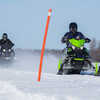
31 Ways To Get In The Know About Snowmobile Trail Riding in Ontario

A Beginner's Guide to Snowmobile Lingo

